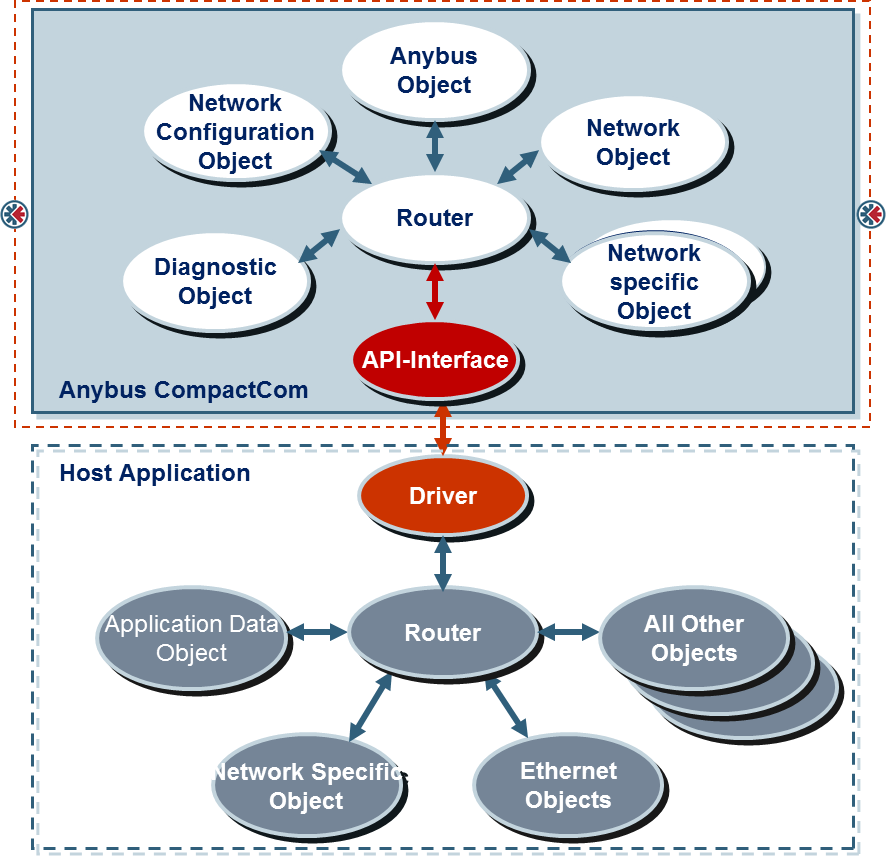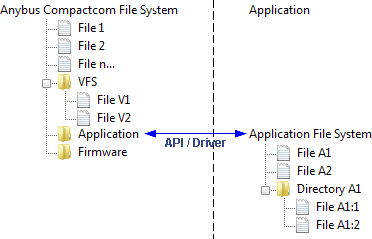Software interface
Anybus CompactCom 40-series, Software Application Interface
The CompactCom 40 series software interface is designed to be network protocol independent, allowing the host application to support all major networking systems using the same software driver, without loss of functionality.
To provide flexibility and room for expansion, an object oriented addressing scheme is used between the host application and the Anybus module. This allows for a very deep level of integration.
The software interface of the CompactCom provides a structured way to access:
- Process & Parameter Data Exchange
- Device diagnostics
- Network and system events
- File exchange
Anybus host application software driver
To speed up the development process, HMS supplies free source level (C-language) software drivers. These drivers act as “glue” between the Anybus module and the host application, thus separating low level communication tasks from the host software environment.
The Driver supports parallel, SPI and serial host applications interfaces, and can either be polled cyclically or operate as an interrupt driven service. Potential targets include high performance applications which need a high degree of network functionality and flexibility
The driver requires porting to the host system environment
File Exchange
In addition to the general storage and exchange of files and data between the network and the host application, the file system contains three predefined and reserved folders.
- Virtual File Systeem (VFS)
VFS supports the storage of files and data that is used by the module itself. This directory includes for example the web pages presented when the module is approached by a browser. - Application
This folder provides access to the optional 'external' file system within the host application. The physical file storage and management is handeled by the host application via the driver. - Firmware
This folder is reserved for the storage of firmware updates.
Protocols that do not support FTP have no direct access to the file system. In this case, an application-specific solutions can be implemented, with a specific protocol format, getting aacces to the file system via the host application. This is in any case necessary if on-line downloading of firmware is important.






